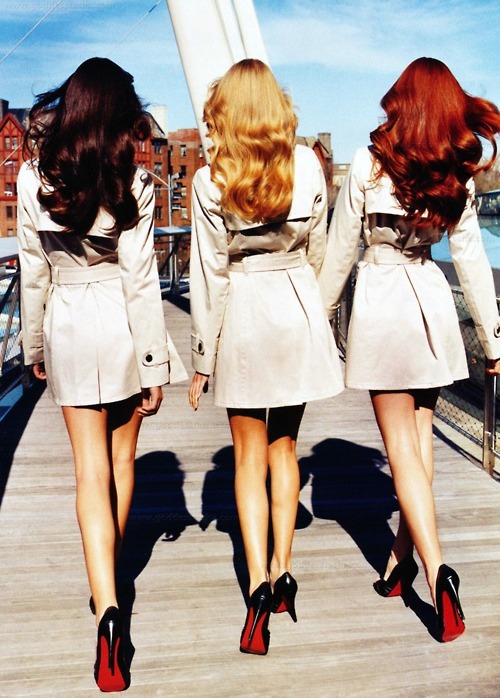Power is being able to control people and situations with or without strain. If you don’t have power in the world of media, you really don’t have much. The power to control what people see and how they receive the message you are trying to send it critical. Once you understand how “the crowd” works- you’re set. There is nothing that can stop you from sending the message you want to send and it being received exactly how you want it to be received. In the reading “Era of the Crowds” the author writes, “... how powerless they are to hold nay opinions other than those which are imposed upon them, and that is not with rules based on theories of pure equity that they are to be led, but by seeking what produces an impression on them and what seduces them.” Once you figure out what your target can be easily seduced with- all the power is in your hands.
Our society is practically ruled by sexism, and we fall victim to it without even realizing it. Almost every female wants to be and have what she sees the women on TV posses. The curves, the hair, fabulous clothes. Rarely do we see a woman doing something “manly” on television or in magazines. Same goes for men- the idea that is implanted in most of our heads is that a household needs a strong male figure. One who has the looks, the job, the cars, the money. Men spend hours at the gym working out to look like what they think women want to see. Very rarely do we see a man playing a feminine role because that just wouldn’t fit the stereotype our society created long ago.

Object, spectacle, and ways of looking all feed off of one another. We see something that appeals to us, we want it, we do what we can to get it. It all depends on the spectacle that is created around any given object. If the spectacle around the object is striking, then the way we look at the object changes. In Remote Control, B. Kruger writes “We are demi-living proof that the video camera has replaced the mirror as the refection of choice.” If we only see life through filters, then business will be blooming.
Many things fall into the category of popular culture. It doesn’t necessarily have to be a “thing”, it can be an attitude we walk around with and what we think is important because that's what we are shown. Anything mainstream influences pop culture. The way things are represented is a big factor. If we see someone famous doing/saying something, and then we see more and more “celebrities” do it- we will eventually fall victim to whatever “cool slang” is being used. If a certain shoe brand is in, and we see it everywhere it is perceived as “cool” then most of us will want that shoe. Take Jordan's for example, they are a pretty pricey shoe and people will buy them because of what they represent. Which is basically being “in style” .. or “cool”.

Pedagogy is method and practice of teaching. Pop culture can be considered our pedagogy. It educates us about everything that is “in” and what we think we need. Berger talks about how we are obsessed with a glamorous lifestyle. He writes “The state of being envied is what constitutes glamor. And publicity is the process of manufacturing glamor.” Publicity may also be considered our pedagogy. Without it- we would have no clue of, once again, what is “in” and what we think we need.
Consumption of goods and the consumers are the main driving force of our economy. It is the reason for all the imagery, advertisements and commercials being made. Without that, the media wouldn’t really have a purpose in existing. We are the ones who buy everything that is advertised to us, whether we need it or not. Brands are displayed a specific way to make us believe we need everything from that brand, and everything that will be released in the near future.
The gaze is the way the consumer views all these images and advertisements. Advertisements put people on billboards and on magazines that look so delighted with whatever is being advertised that we feel compelled to buy it. Whenever we see an add for shoes or clothes we imagine ourselves in it and decide whether we want it or not. Whether we realize it or not “the gaze” is used on a daily basis. The train of thought that runs through our minds as we see an object or a person of desire and how that specific image is being portrayed.



No comments:
Post a Comment
Note: Only a member of this blog may post a comment.